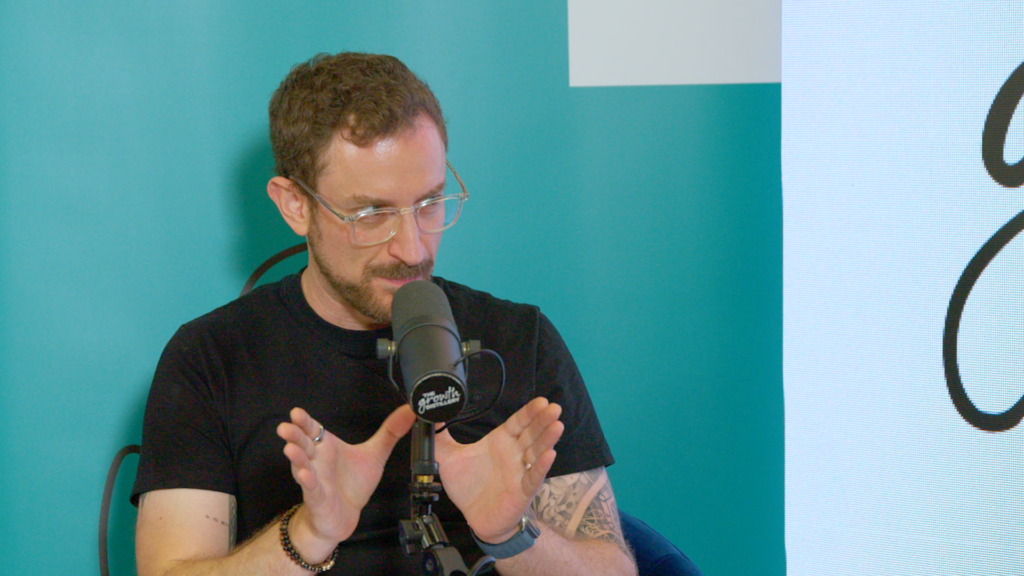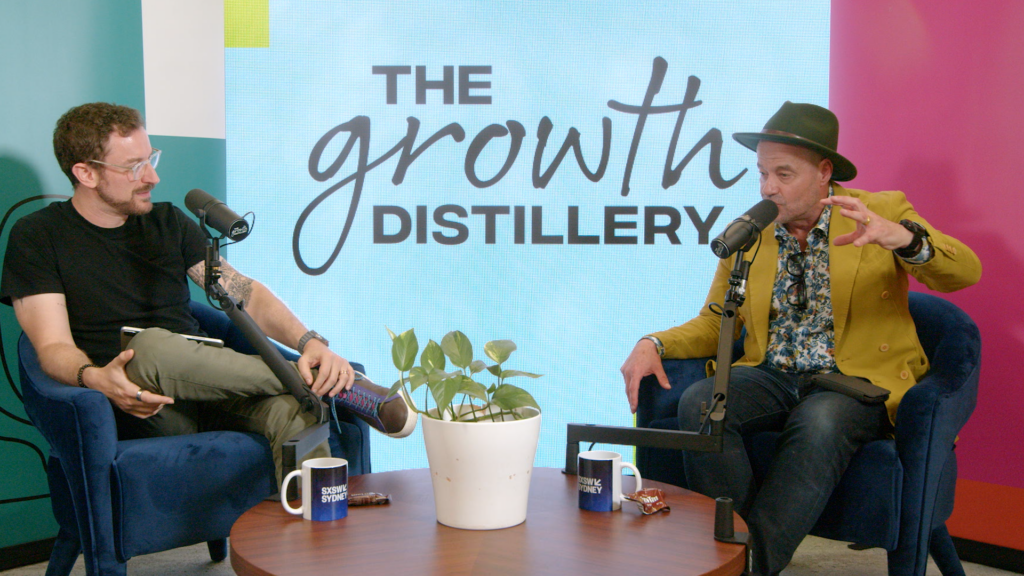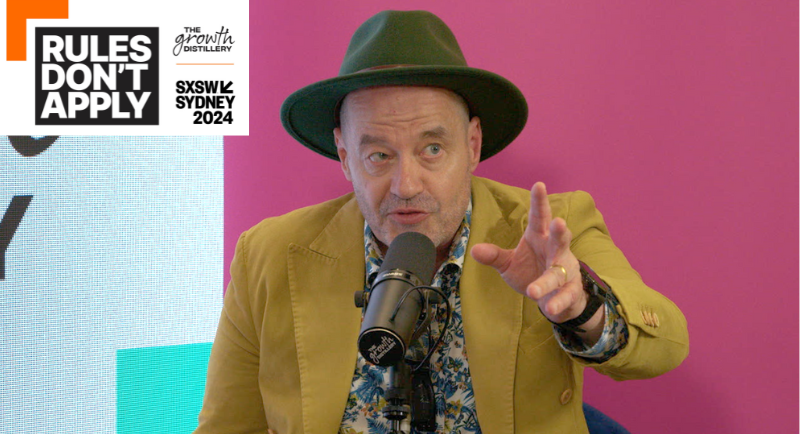As part of its presence at SXSW Sydney in 2024, The Growth Distillery hosted a series of 10 vodcasts hosted by Dan Krigstein and branded Rules Don’t Apply.
The fourth guest in the series was Adam Spencer – mathematician, comedian, and AI enthusiast. During his conversation with Krigstein, Spencer explored the future of work, creativity, and the evolving role of artificial intelligence. Known for his ability to make complex topics accessible and entertaining, Spencer takes Rules Don’t Apply listeners on a journey through the digital revolution.
Can AI be truly alive?
From radio broadcasting to the rise of chatbots, Spencer shared his insights into how AI is reshaping the workplace and unlocking new opportunities for creativity. He tackled the big philosophical questions – can AI be truly alive? How do we navigate the ethical challenges of AI “hallucinations”? and offers his perspective on how everyone, from seasoned professionals to curious newcomers, can approach this brave new world with curiosity and resilience.
At the start of the session, Krigstein introduced his guest:
Adam is one of Australia’s radio and TV icons, now also a leading commentator on AI, the future of work, cyber security, and the chat GPT revolution.
Adam was working towards a PhD in pure mathematics. But he took a 30-year diversion into radio and TV. That has seen him host two top-ranking breakfast shows, multiple TV productions, write seven bestselling maths books, and deliver one of the nerdiest TED talks on massive prime numbers.
He’s also the University of Sydney’s first-ever ambassador for mathematics and science.

Dan Krigstein
Dan Krigstein: How on earth did you start in pure mathematics and end up as a comedian?
Adam Spencer: I was from the earliest days pretty handy at maths. I used to love it. It was just a very natural language for me. I do sympathise if you just don’t get it.
There’s open questions as to how much if it’s taught better and if you get an inspiration or two. But there’s certainly some people who have a ceiling on maths. It just made sense to me. I remember the first time in year eight that I saw the quadratic equation. X equals minus B plus or minus square root of B squared minus four is over two.
I looked at that for a few seconds and went, “Well, how else are you going to complete a square and solve a quadratic?” It just made sense. It was a long way into my maths journey before I started to go, “Oh, I’m struggling a bit here.” I was quite lucky. But I was also pretty good at chat.
In high school I did a lot of debating, and then in pro theatre at uni and things like that. I was a mixture of mathematically alright and could really talk a bit, which is a bit of a rare double. Around the time I got into uni and did arts law. The first person in my family to ever go to uni. I had no idea what I should do, and did arts law because I was good at debating.

Dan and Adam in the Rules Don’t Apply studio
Picked maths as one of my arts subjects. After a little while, didn’t like economics, didn’t like philosophy, realised I didn’t really want to do big corporate law, dropped everything. Still had mathematics at that stage. I’d only been at uni four years at that stage. And looking back on it, my arts degree was probably the best nine and a half years of my life.
I thought, I want to stick at it. Got a really good honours year mark, started a PhD and suddenly realised, I actually don’t know if I’ve got the tools in the tool kit here. Most people who do PhDs in pure maths are probably better at maths than me, and from day one of the first year were focused on that big prize.
Looking back, I was probably really good at getting outrageously good marks in exams, without an incredibly nuanced, rich, deep understanding. I was playing that game. I like to say, in a room of randomly selected people, I’m a maths genius. In a room of maths PhDs, as dumb as a box of hammers. I’m just not an elite mathematician at all.
My ability to talk that language, and generalise it in a way that people who don’t feel it’s natural to them can understand some of the beauty of mathematics, is my skill. That doesn’t pay the bills, as I was starting to realise halfway through a PhD that just wasn’t going to get there. My girlfriend at the time enrolled me in a stand up comedy competition, the first ever raw comedy that Triple J held.
They still hold it, Undiscovered Comedians, I was up on stage for the first time in 1996. I enrolled in raw comedy, it’s the first time they’ve ever done it, so the standard is appalling. So I win. And then they go, do you want to come and hang out with the guys at the radio station? It was just a really easy decision for me to make.”
Watch the Adam Spencer episode of Rules Don’t Apply.
See also:
• Rules Don’t Apply: The Battle for Creativity: AI vs. Humanity with Futurist Brian David Johnson
• Layne Beachley first guest on Rules Don’t Apply vodcast series from The Growth Distillery
• Rules Don’t Apply: Unmasking Reality – Navigating Truth in the Age of AI with Noelle Russell
